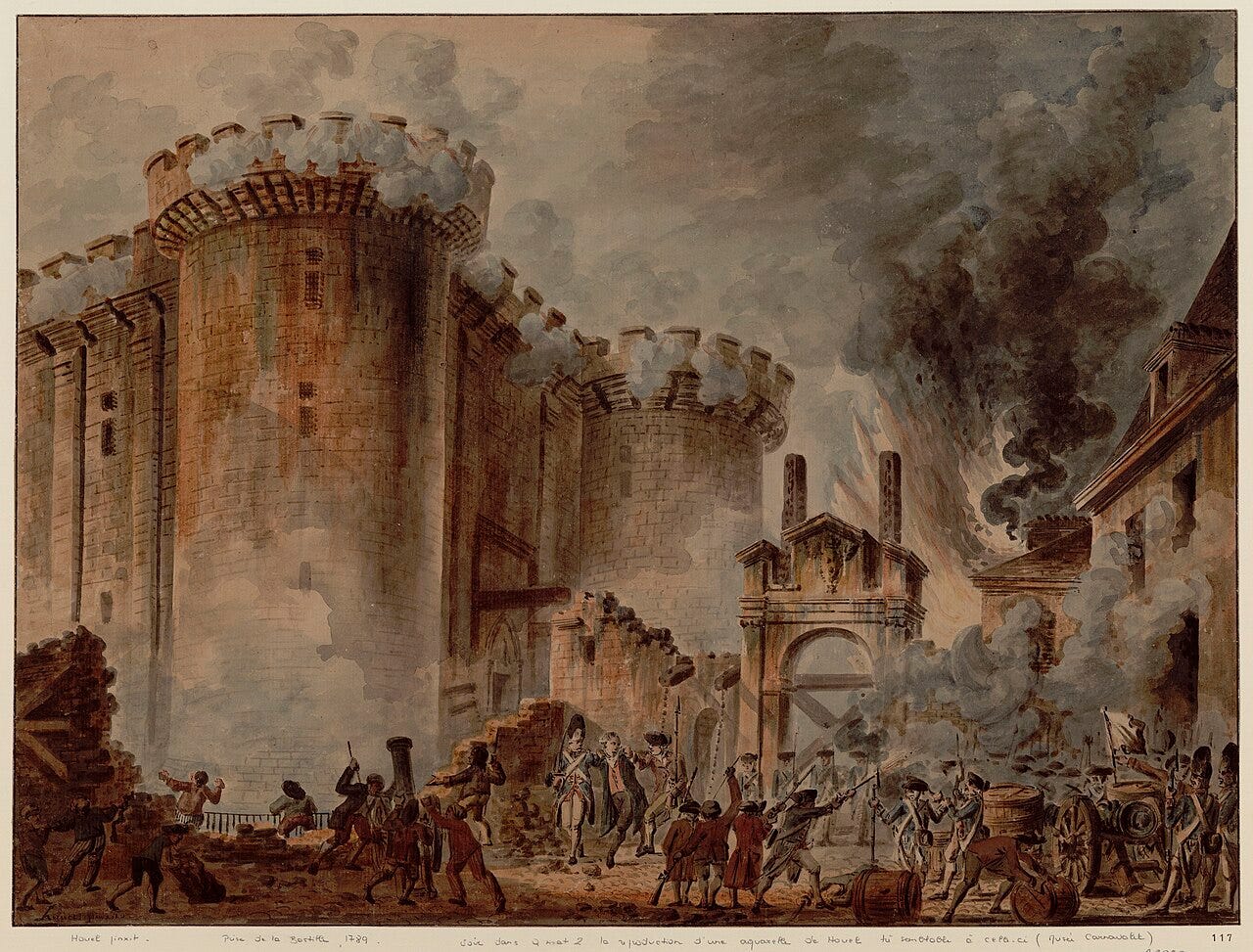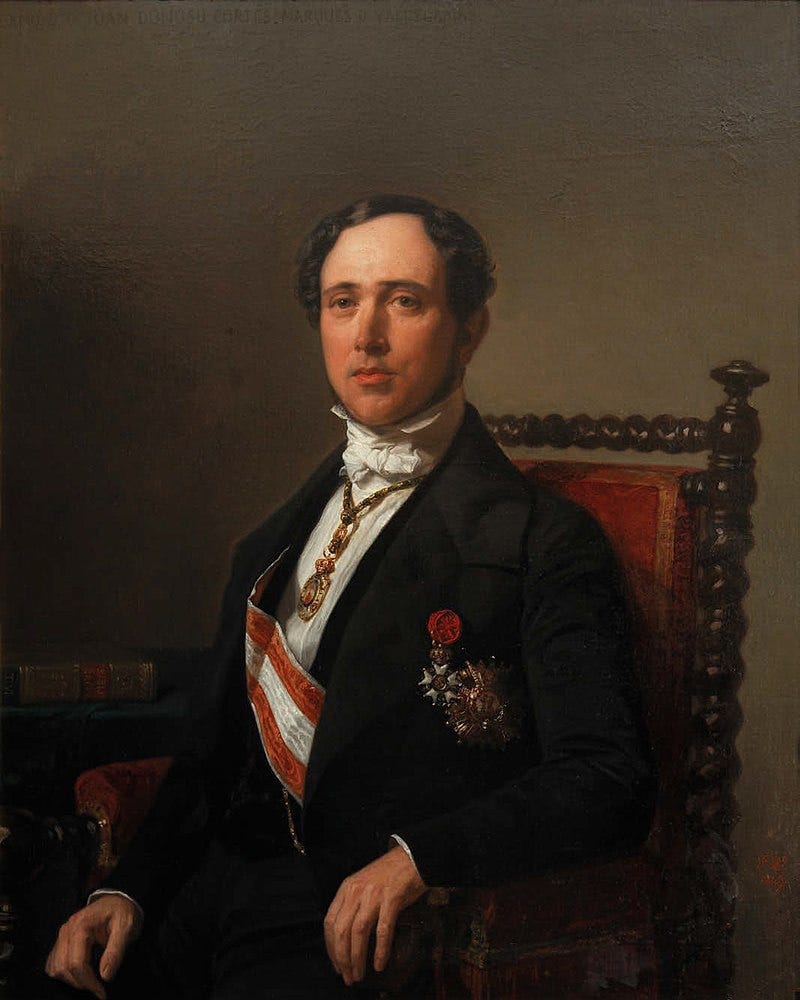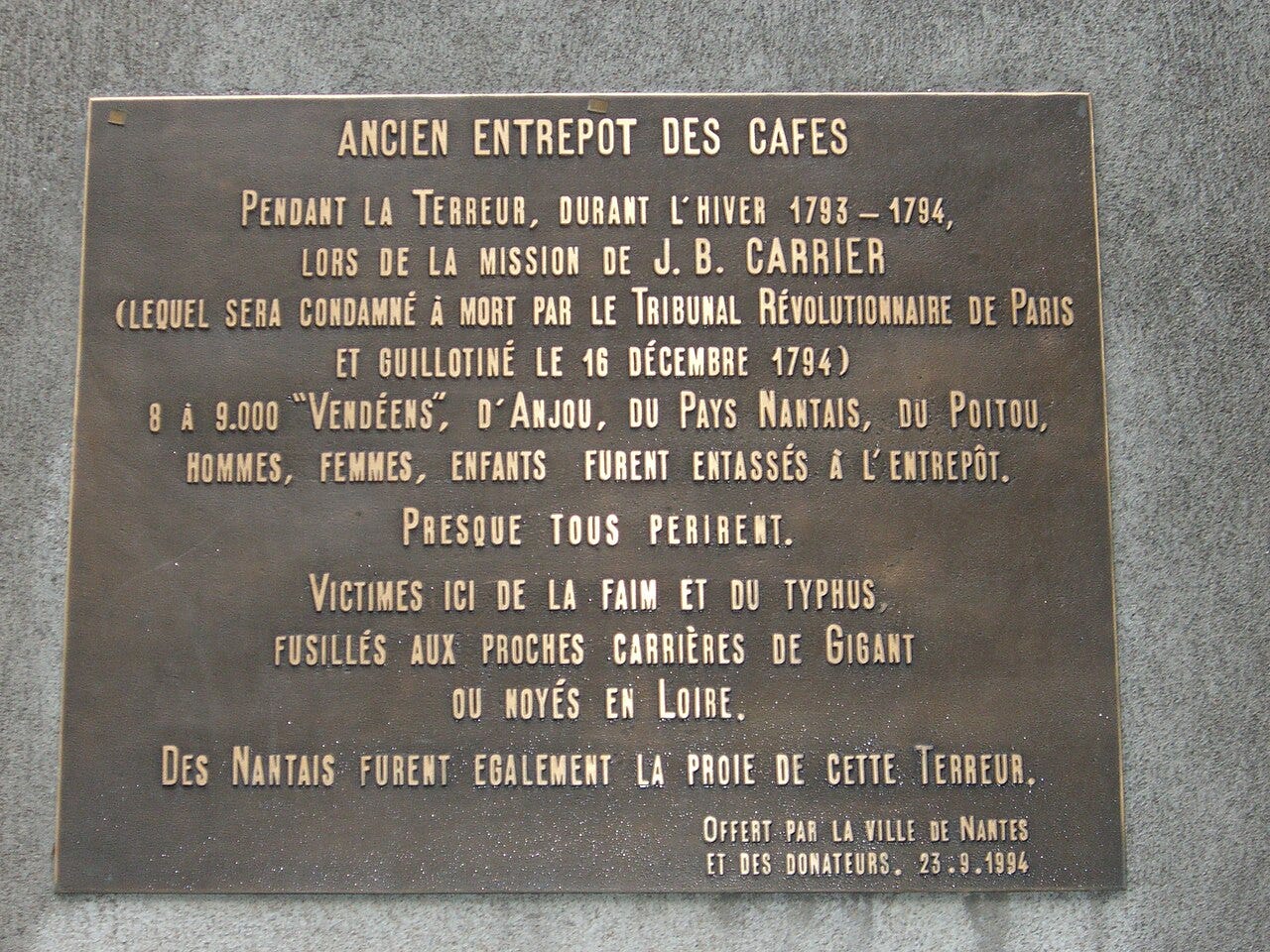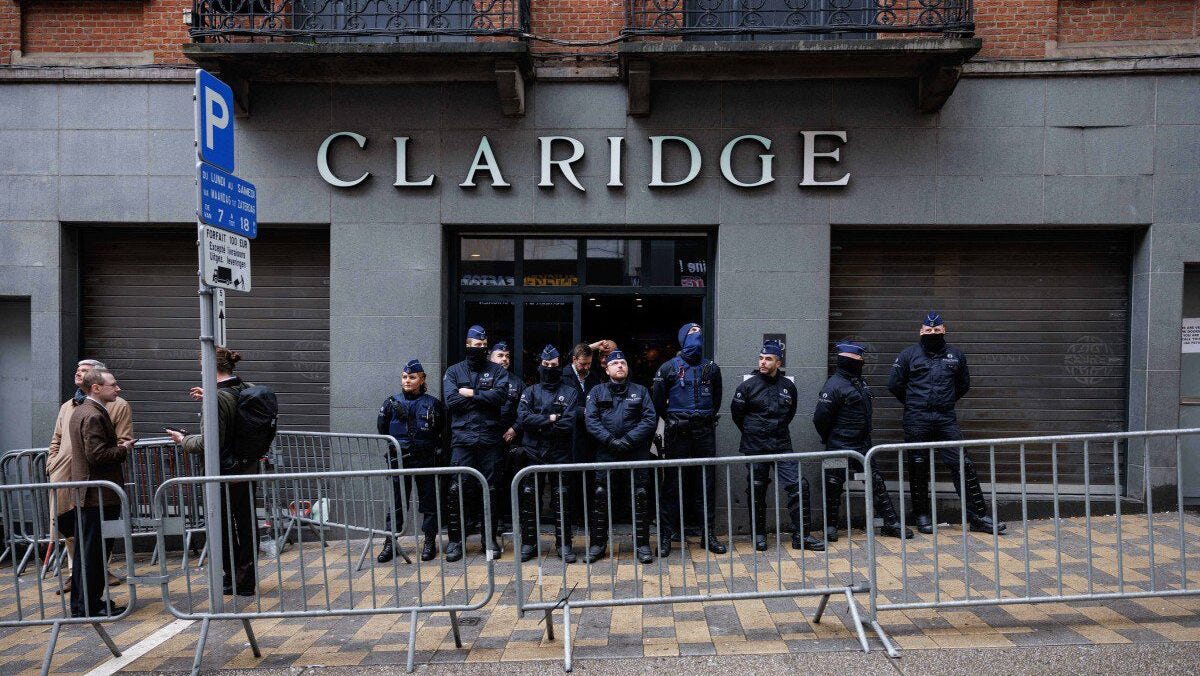The Alliance With Liberalism has Expired
Or Why Conservatives and Traditionalists better create an independent stream of thought

The 20th century was the age of ideologies. Israeli historian Yuval Noah Harari 1called them secular religions that took man as the object of their worship. The various ideologies - evolutionary humanism, social humanism and liberal humanism - thus represent denominations of one humanist religion, a claim that had been also supported by people from varying backgrounds - a Spanish traditionalist claiming all ideologies stem from liberalism2 to a young historian describing the 20th century a century of humanist wars of religion having a faith in human progress as their common trait 3
What was the result of the deification of man and his placing on a pedestal? Endless human suffering. Humanist denominations have killed more people in their religious wars than all other religious wars combined. Evolutionary humanism in its Nazi embodiment undertook the extermination of entire peoples it considered subhuman to make room for a chosen race. Social humanism exploited the human vice of envy and, taking all of human history as a struggle between the oppressed and the oppressors, sent the hitherto more successful ones to the gulag.
Evolutionary humanism in its Nazi form was defeated militarily. Social humanism in its Leninist form was defeated by a combination of its own systemic flaws, which logically flowed from the ideology, and the personal qualities and courage of their opponents-St. John Paul II, Ronald Reagan, and Margaret Thatcher.
Today, liberal humanism, liberalism for short, still has a leading role in society, although the cracks in the whole liberal project are becoming more and more evident. If this were not the case, Patrick Deneen would hardly be looking for material for his Why liberalism failed?4 Does the alliance with liberals, as Jacques Maritain justified it after World War II, still make sense for Christian conservatives, or should we take Deneen's thesis as our own?
As such, an alliance is a relationship between formally equal partners. It is not to be mistaken for a vassal relationship, where one party swears loyalty to the other and the latter is supposed to protect it. An alliance means preserving one's own identity and distinctiveness and protecting each other from a common enemy, while agreeing not to attack each other. As a rule, an alliance makes sense when there is a consciousness of a distinct and powerful external threat against which neither ally alone has a hope of standing alone. At present, the raison d'être, namely the threat from the communist totalitarian ideology that has set out to destroy the role of the Church in society as well as the market economy, seems to have disappeared and a common perception of a threat of similar magnitude does not exist. At the same time, the resolve of liberals to defend original liberal ideas such as freedom of speech from the pen of John Stewart Mill seems to be fading. Maintaining this alliance would require goodwill, respect for the ally's vital interests and respect for his dignity.

In our domestic Slovak environment, liberals in their original conception of personal liberties are today an endangered species, overshadowed by the progressive current (as had been foretold by the wisdom of Juan Donoso Cortés5) which has fitted itself for a leading role in the Slovak opposition while insisting, albeit less vociferously, on its ideological programme, which fundamentally denies the vital interests of Christian conservatives, natural law and human nature.At the same time, the rest of the opposition is expected to acknowledge this leadership role in the opposition struggle - in other words, for some reason progressive strategists hope that Christian conservatives will supply the strength for a progressive victory in order to push their agenda, which will negate everything Christian conservatives have ever stood for. In France, the liberal President Macron had decided in the end to support the whole spectrum of left-wing parties in the elections, from the Social Democrats to the Communists and the Greens, and the radicals who shouted anti-Semitic slogans, in order to prevent the chance of a victory for national conservatives, led by Bardella.
Finally, does this alliance inherently make sense? After all, liberalism itself is based on freeing the individual from all obligations not of his own choosing. It forgets that man is a zoon politikon, a social creature. Examining Harari´s portrayal of man, it is shocking to see how the author jumps between the individual man and humanity as a whole, forgetting the in-between level. This intermediate level, the cuerpos intermedios, in the form of state associations, guilds, local government, or the Church, thus constitutes, in practical terms, a counterbalance to the appetites of absolutist and later totalitarian rule and control. Their existence as an intermediate level between the individual and the state,which stems from social pluralism, is, according to Huntington in The Clash of Civilizations6, one of the fundamental features of our Frankish civilization.
The liberal views the cuerpos intermedios with suspicion, and allows the individual at the first sign of difficulty to cut off all obligations that bind him somewhere. If enough people do this, the individual loses all other forms of security and is left to turn only to the state. And it is this liberal conception that has so strengthened the state apparatus that it has made the horrors of the 20th century possible. Totalitarian regimes can thus be a direct consequence of liberal principles. Today, liberalism has mutated into a progressive neo-Marxism, before which classical market liberalism is proving powerless
It should not be forgotten that the Enlightenment tradition stems from the French Revolution, led under liberal slogans and the struggle for the rights of man and the citizen, and led very quickly to the Jacobin terror. Under the slogan Liberté, Egalité, Fraternité, the Vendée region was drowned in blood in the name of respect for the rights of man and the citizen, of liberty, in the name of equality and fraternity. The Spanish liberals fought bloody battles against the Carlists armed for God, Fatherland and King (Dios, Patria, Rey). Throughout the 19th century it was the liberals who were the enemies of the conservatives, and across Europe. Even today, national conservatives are portrayed as the biggest possible threat for the liberal establishment.

The alliance of liberals and conservatives had been forged under conditions of severe crisis and was temporary. Ultimately it proved unnatural, costing the Conservatives so many concessions that its continued existence is unthinkable. It is time for conservatives to leave the amniotic waters of liberalism behind, straighten up, and begin to draw on the depth and richness of their own tradition.
HARIRI, Yuval Noah: Homo Deus,: A Brief History of Tomorrow, Chapter 7.
ORDOÑEZ, Eduardo on Resistance Podcast Episode 162, YouTube Link
LYNCH Rudyard: The Secret History of the 20th Century, YouTube Link
DENEEN, Patrick: Why Liberalism Failed?
DONOSO CORTÉS, Juan: Essays on Catholicism, Liberalism and Socialism Considered in Their Fundamental Principles
HUNTINGTON, Samuel Philips: Clash of Civilizations and the Remaking of World Order





A good view in general.
Some notes:
- In Spain the word "conservative" means moderate liberal, the way for good conservatives is reject liberalism and promote and join to some kind of neoreactionary movement.
- Liberalism (the progressive liberalism) is in general pro-market, that explains the supporting of globalism (the main interest of economic liberalism), and of course there's a marxist influence also (68 May, class struggle).
- Thanks for the mention of Donoso Cortés.
still too ideological for my taste, and too abstract. The question of liberalism and conservatism needs to be considered as a dialectic most often resolved as reasoned compromise, not a cage match between absolutes. As a contest applied in specific contexts to address specific questions, matters of practical import.
Consider the extremes of social liberalism and social conservatism in regard to the visibility of women: the extreme conservative position can be represented by Wah'habbi Pathans, where women are literally neither seen or heard by strangers to the household; they stay behind a curtain in the kitchen and cook. Males are required to avert their eyes in the presence of any woman who happens to appear, especially if unveiled. Proper dress in public is the burqa, a garment which not only conceals the female form and hair, but conceals the entire face behind a screen that renders even her eyes invisible. That's the Conservative extreme of social modesty for women in Pathan society; their presence is practically erased.
The extreme social Liberal position means that anything goes; that not only are women allowed to parade naked on the street, but their bodies are available for fondling by anyone who finds them desirable--because, after all, any provision of personal restraint is by definition Conservative!
The modern dialectic in the West has currently resolved to a compromise: women have the right to wear revealing clothing in public, but stop short of nudity. Those who find their bodies alluring are nonetheless forbidden from wantonly groping. Women also have the freedom to dress as modestly as they choose. In my experience and observation, the compromise is satisfactory, and not socially destabilizing. In the public places where that latitude applies, the rules are negotiated by the prevailing social Zeitgeist.
I do agree with you that the negotiation between liberal and conservative attitudes really doesn't work as an alliance; the relationship is uneasy and unstable, until a mutual balance is settled on. The alliance of social cohesion is only possible when the dynamic of the dialectic arrives at some semblance of compromise, as a real-world local community social consensus. It seems to me that such a consensus is also settled relationally; the community center deserves more modesty, and tolerance of the demimonde and the libertine is confined to the margins, or to the realm of personal privacy. Tolerance for the more outre expressions of the margins is not to be misconstrued as a message of immorality on the part of political authority and government power; it's more like a
practical acknowledgement of the practical limits of the ability to police morals. We really don't need bedroom or living room police; that level of coerced morality is both ineffective and corrupt. It has a way of compounding perversity and immorality, and making it worse. But that doesn't mean anything goes in the public sphere. Strangers and visitors are Guests, and need to conform to the local social expectations and standards of moral behavior of the territory hosting their presence. That is not a Human Rights justice cause, and especially not a Universal Human Rights justice cause.
That's my opening ante of my thesis in the dialectic, anyway.